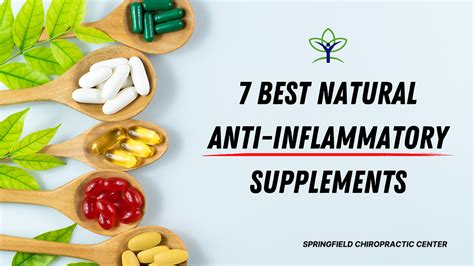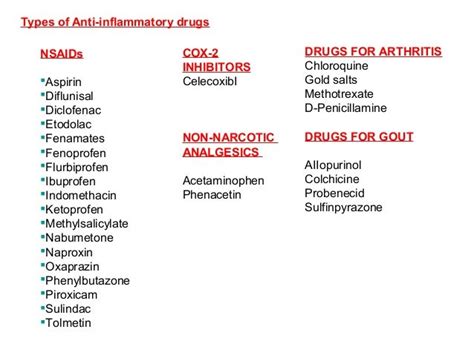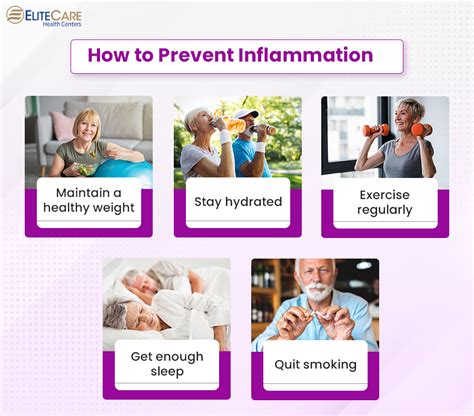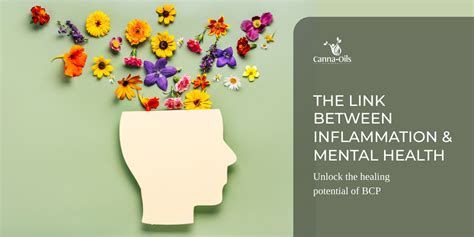Intro
Discover the best medicine for inflammation, including anti-inflammatory drugs, natural remedies, and pain relievers to reduce swelling and alleviate symptoms of chronic inflammation, arthritis, and joint pain.
Inflammation is a natural response of the body's immune system to injury or infection, but chronic inflammation can lead to various health problems, including arthritis, diabetes, and cardiovascular disease. Managing inflammation is crucial to prevent these conditions and maintain overall well-being. With numerous treatment options available, it can be overwhelming to determine the best medicine for inflammation. In this article, we will delve into the world of anti-inflammatory medications, exploring their benefits, working mechanisms, and potential side effects.
The importance of addressing inflammation cannot be overstated, as it plays a significant role in various diseases. Chronic inflammation can cause damage to tissues and organs, leading to debilitating conditions that affect quality of life. Furthermore, inflammation can also exacerbate existing health issues, making it essential to find effective treatments. With the rise of modern medicine, numerous options are available to manage inflammation, ranging from over-the-counter medications to prescription drugs and alternative therapies.
Understanding the different types of inflammation is crucial in determining the best course of treatment. Acute inflammation is a short-term response to injury or infection, whereas chronic inflammation is a long-term condition that can last for months or even years. Each type of inflammation requires a unique approach, and medications may vary depending on the underlying cause. For instance, acute inflammation may be treated with over-the-counter pain relievers, while chronic inflammation may require prescription medications or alternative therapies.
Types of Anti-Inflammatory Medications

There are several types of anti-inflammatory medications available, each with its own benefits and drawbacks. Nonsteroidal anti-inflammatory drugs (NSAIDs) are commonly used to treat acute inflammation, as they can help reduce pain and swelling. Examples of NSAIDs include ibuprofen and naproxen. Corticosteroids, on the other hand, are powerful anti-inflammatory medications that can be used to treat chronic inflammation. However, they can have significant side effects, such as weight gain and mood changes.
Corticosteroids and Their Uses
Corticosteroids are a type of steroid hormone that can be used to treat various inflammatory conditions, including asthma, rheumatoid arthritis, and lupus. They work by suppressing the immune system, which can help reduce inflammation and prevent tissue damage. However, long-term use of corticosteroids can lead to serious side effects, such as osteoporosis, diabetes, and glaucoma.Natural Anti-Inflammatory Agents

In addition to pharmaceutical medications, there are several natural anti-inflammatory agents that can be used to manage inflammation. Turmeric, for example, contains a powerful compound called curcumin, which has potent anti-inflammatory properties. Ginger, on the other hand, has been shown to have anti-inflammatory effects, making it a popular natural remedy for conditions such as arthritis. Other natural anti-inflammatory agents include omega-3 fatty acids, vitamin D, and probiotics.
Dietary Changes to Reduce Inflammation
Dietary changes can also play a significant role in reducing inflammation. Eating a balanced diet rich in fruits, vegetables, and whole grains can help reduce inflammation, as these foods are high in antioxidants and other anti-inflammatory compounds. Avoiding processed and sugary foods, which can trigger inflammation, is also essential. Additionally, incorporating anti-inflammatory foods, such as fatty fish, nuts, and seeds, into your diet can help reduce inflammation and promote overall health.Prescription Medications for Inflammation

Prescription medications can be effective in managing chronic inflammation, especially in conditions such as rheumatoid arthritis and lupus. Biologic medications, such as tumor necrosis factor (TNF) inhibitors, can help reduce inflammation by targeting specific molecules involved in the inflammatory process. Disease-modifying antirheumatic drugs (DMARDs), on the other hand, can help slow down disease progression and reduce inflammation.
Alternative Therapies for Inflammation
Alternative therapies, such as acupuncture and massage, can also be used to manage inflammation. These therapies can help reduce stress, which can contribute to inflammation, and promote relaxation, which can help reduce pain and discomfort. Additionally, mind-body therapies, such as meditation and yoga, can help reduce inflammation by promoting relaxation and reducing stress.Managing Inflammation with Lifestyle Changes

Lifestyle changes can play a significant role in managing inflammation. Regular exercise, for example, can help reduce inflammation by promoting weight loss and improving insulin sensitivity. Getting enough sleep, which can help reduce stress and promote relaxation, is also essential. Additionally, quitting smoking and limiting alcohol consumption can help reduce inflammation and promote overall health.
Reducing Stress to Manage Inflammation
Reducing stress is crucial in managing inflammation, as chronic stress can trigger inflammation. Engaging in stress-reducing activities, such as meditation and yoga, can help promote relaxation and reduce stress. Additionally, taking regular breaks, practicing deep breathing exercises, and getting enough sleep can help reduce stress and promote overall well-being.Inflammation and Mental Health

Inflammation can have a significant impact on mental health, as chronic inflammation can contribute to conditions such as depression and anxiety. Reducing inflammation through lifestyle changes, such as regular exercise and a balanced diet, can help promote mental well-being. Additionally, engaging in stress-reducing activities, such as meditation and yoga, can help reduce inflammation and promote relaxation.
The Role of Nutrition in Reducing Inflammation
Nutrition plays a crucial role in reducing inflammation, as a balanced diet rich in fruits, vegetables, and whole grains can help reduce inflammation. Avoiding processed and sugary foods, which can trigger inflammation, is also essential. Additionally, incorporating anti-inflammatory foods, such as fatty fish, nuts, and seeds, into your diet can help reduce inflammation and promote overall health.Conclusion and Future Directions

In conclusion, managing inflammation is crucial to prevent various health problems and maintain overall well-being. With numerous treatment options available, it is essential to determine the best medicine for inflammation based on individual needs and health status. By understanding the different types of inflammation, using anti-inflammatory medications, incorporating natural anti-inflammatory agents, and making lifestyle changes, individuals can effectively manage inflammation and promote overall health.
What are the most common causes of inflammation?
+Inflammation can be caused by various factors, including injury, infection, autoimmune disorders, and chronic diseases such as arthritis and diabetes.
How can I reduce inflammation naturally?
+Reducing inflammation naturally can be achieved through lifestyle changes, such as regular exercise, a balanced diet, stress reduction, and getting enough sleep.
What are the benefits of using anti-inflammatory medications?
+Anti-inflammatory medications can help reduce pain, swelling, and inflammation, making them effective in managing conditions such as arthritis, asthma, and lupus.
We hope this article has provided you with a comprehensive understanding of the best medicine for inflammation. Remember to always consult with a healthcare professional before starting any new treatment or making significant lifestyle changes. Share your thoughts and experiences with managing inflammation in the comments below, and don't forget to share this article with friends and family who may benefit from this information.
